Listed below are selected teacher resources for teaching Applied Design, Skills and Technology.
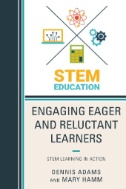 Engaging eager and reluctant learners: STEM learning in action
Engaging eager and reluctant learners: STEM learning in action
by Dennis Adams and Mary Hamm
Grades: K-7.
A research based approach to fostering an environment that helps all students excel in STEM and in the classroom more broadly. Focuses on collaborative learning, differentiation, and diversity in STEM instruction and the real world applicability of STEM today.
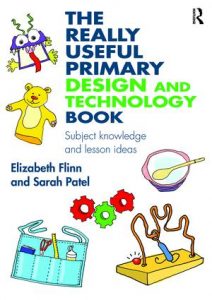 The really useful primary design and technology book
The really useful primary design and technology book
by Elizabeth Flinn and Sarah Patel
Grades: K-6
Offers practical tools, strategies, lesson plans, and how-to guides for teaching various aspects of design and technology, including cooking and nutrition, textiles and design, IT control and monitoring, electronic systems, and more. eBook only. For more in The really useful series, click here.
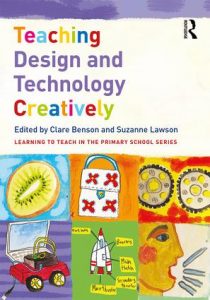 Teaching design and technology creatively
Teaching design and technology creatively
Clare Benson and Suzanne Lawson
Grades: K-7
Through practical ideas, real-life scenarios, and creative lesson plan ideas, this book stresses the importance of design and technology education (D&T) in the elementary classroom. Covers topics such as understanding and utilizing the link between D&T and creativity, developing a D&T skillset early, embedding D&T in the curriculum, making cross curricular connections, D&T outside the classroom, and more. eBook only.
 STEM and ICT Education in Intelligent Environments
STEM and ICT Education in Intelligent Environments
by Hideyuki Kanematsu and Dana M. Barry
Grades: K-7
This book explores the intersection of STEM and ICT and how to integrate the two seamlessly. Includes simple hands on activity outlines and their relevance to each subject area, as well as digital activity ideas. eBook only.
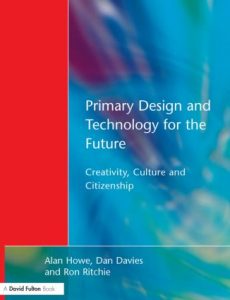 Primary design and technology for the future: Creativity, culture and citizenship
Primary design and technology for the future: Creativity, culture and citizenship
by Alan Howe, Dan Davies, and Ron Ritchie
Grades: K-7
This book explores the cross-curricular nature of ADST and its connection to creativity, culture, and citizenship in the classroom. Includes examples of best practices in the book that have been successfully implemented. eBook only.
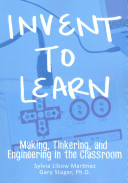 Invent to learn: Making, tinkering, and engineering in the classroom
Invent to learn: Making, tinkering, and engineering in the classroom
by Sylvia Libow Martinez and Gary Stager
Grades: K-12
Children are natural tinkerers, and the maker movement overlaps with both their natural inclinations and the power of learning by doing. This book helps educators bring the opportunities of the maker movement to every classroom. Even without expensive hardware, the classroom can become a makerspace where students and teachers learn together through direct experience with an assortment of high and low-tech materials.
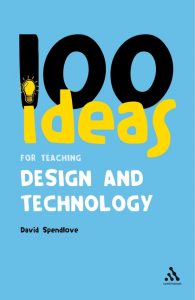 100 ideas for teaching design and technology
100 ideas for teaching design and technology
by David Spendlove
Grades: K-12
This book provides practical ideas to implement, but also encourages teachers to consider the place of design and technology education in schools and society today. Each idea has been tried and tested by practicing teachers. For more in the Continuum one hundreds series, click here.
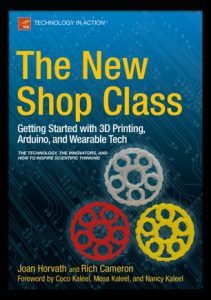 The new shop class: Getting started with 3D printing, Arduino, and wearable tech
The new shop class: Getting started with 3D printing, Arduino, and wearable tech
by Joan Horvath and Rich Cameron
Grades: K-12
This book explores the connection between making, hacking, science, and engineering, and the benefits of hands-on technology instruction. Covers topics such as 3D printing, drones, cosplay, female makers and scientists, circuits and programming, open source, makerspaces, and more. eBook only.
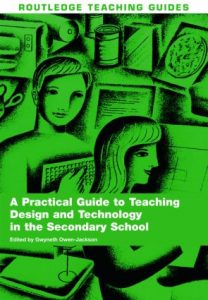 A practical guide to teaching design and technology in the secondary school
A practical guide to teaching design and technology in the secondary school
by Gwyneth Owen-Jackson
Grades: 8-12
This book covers various areas of Design and Technology education, including culinary arts, textiles, and ICT. Also includes ideas for cross-curricular learning, planning D&T lessons, assessment, and professional development. eBook only.
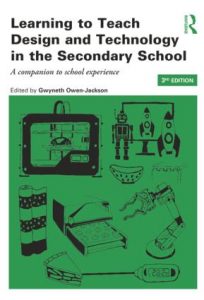 Learning to teach design and technology in the secondary school
Learning to teach design and technology in the secondary school
by Gwyneth Owen-Jackson
Grades: 8-12
After providing a history of design and technology education, this book delves into the specifics of teaching food, textiles, materials, graphics, and design technologies, including the planning, delivery, assessment, and reflection of these subjects. It culminates with a discussion of cross curricular connections, values, and professional development. eBook only.
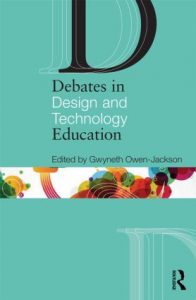 Debates in design and technology education
Debates in design and technology education
by Gwyneth Owen-Jackson
Grades: 8-12
What is the purpose of design and technology? Is it a vocational or academic subject? What knowledge and skills do teachers really need? What is the future for design and technology? These questions and more are explored throughout this text, which challenges teachers to critically reflect on design and technology education and its future.
Finding More Resources
To find more resources in this area, try the following:
- Search using the General tab on the UBC Library website to look for material in all UBC Library branches.
- Search using “Search Education Resources” box in the left hand bar on the Education Library website to limit your results to materials in the Education Library.
- Use specific search terms to narrow your results, such as “Technology–Study and teaching”, “Design–Study and teaching”, “Information technology–Study and teaching”
- To find lesson plans, include “lesson plans”, “lesson planning”, or “activity programs” in your search terms.
For more help with searching, please visit the Library Service Desk or e-mail ed.lib@ubc.ca.